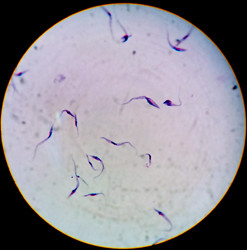Nanomedicine to fight Chagas' disease
According to the World Health Organization (WHO), Chagas' disease is considered among the most neglected tropical diseases. It is caused by the parasite Trypanosoma cruzi and is mainly endemic in South and Central America. Although the disease was identified over 100 years ago, treatment options are very limited. Although the two drugs used for treatment of Chagas' disease (benznidazole and nifurtimox) are efficient at the acute phase of the infection, their effect in the chronic phase is less clear. In addition, the significant side-effects of the drugs cause nearly 30 % of patients to discontinue medication, necessitating new interventions. In this context, the EU-funded 'Benznidazol and triazol research group for nanomedicine and innovation on Chagas disease' (BERENICE)(opens in new window) project aims to develop a new drug formulation for the treatment of Chagas' disease. The idea is to use nanotechnology to encapsulate benznidazole thereby providing a targeted drug delivery system with potentially fewer side-effects. Given that the drug would be released directly into the cell and not in the surrounding tissue, it is envisioned to be better tolerated. Among the project's objectives is to select the best formulation and test its release profile, biological activity, and safety in vitro and in vivo. The ultimate goal of the study is to conduct clinical trials to evaluate the efficacy, bio-distribution and safety of the new drug formulation. So far, researchers have investigated a series of materials and combinations of materials for performing as lipid drug delivery systems. Different nanoconjugate systems have been structurally characterised for the encapsulation of benznidazole. The efficacy of the drug in vitro will be tested in cultures of cardiomyocytes and glial cells infected with the parasite. Standardisation of these laboratory procedures will ultimately lead to clinical trials where drug efficacy will be assessed via molecular and serological analysis. The overall aim of the BERENICE study is to develop a low-cost intervention that can have an immediate impact on the control of Chagas' disease. In addition, the pharmacokinetics and pharmacodynamics data of the major trypanocidal drug benznidazole will improve its proper administration. Given the heavy socioeconomic burden of the disease, these advances should significantly reduce the current picture of the disease.







